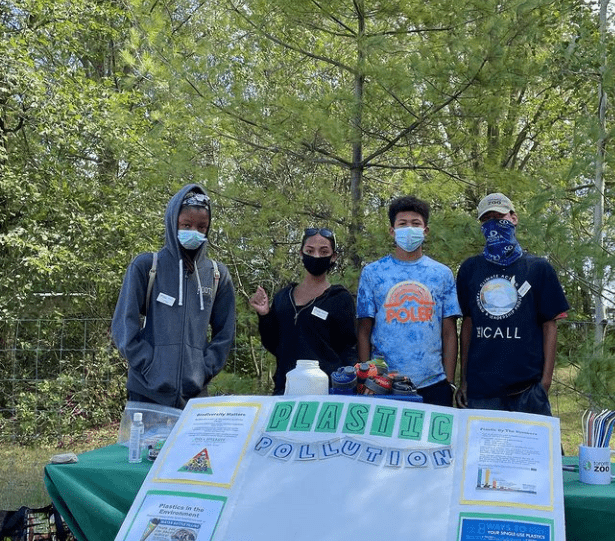What is the secret to a successful post-COVID economic recovery in Toronto?
As vaccination rates continue to increase and the COVID-19 case numbers dwindle in the GTHA, the question at the top of mind for so many people is what will successful economic recovery look like for Toronto?
In pursuit of secret ingredients of the post-pandemic economic recovery in Toronto, the WoodGreen Foundation’s Young Leader’s Council organized a fantastic panel of speakers from across the industry spectrum (social services, private sector and policy and thought leadership) to share their insights on what’s needed for a successful and inclusive recovery in the GTHA.
The panellists were:
- Karen Myers – the Founder, President and CEO of Blueprint, a research organization dedicated to improving social and economic well-being by working together with its partners to solve complex policy challenges.
- Davina Boulineau – the Associate Vice President of Private Client Insurances Services at TD Insurance and a tireless advocate for mentorship and diversity and inclusion, spurring intellectual growth within the company.
- Steve Vanderherberg, the Director of Economic Empowerment at WoodGreen Community Services, who oversees programs including employment, financial empowerment, youth aging out of care, volunteer services and the growth of the workforce development programs.
The moderator for the event was Anna-Kay Russell, the Manager of Public Affairs for WoodGreen Community Services, where she oversees strategic development and government relations for one of Toronto’s largest social service agencies and second-largest affordable housing provider.
Watch the Full Event. The conversation starts at 6:54
Low paid service sector workers hit the hardest during the pandemic
The economic shock triggered by the pandemic has mostly hurt one part of the economy: the service sector.
Employment in several heavily impacted industries (such as construction and manufacturing) has rebounded to more than 90 per cent of pre-COVID levels as businesses reopen. By contrast, overall employment in accommodation and food services remains over 20 per cent below pre-COVID levels.
Low-paid service-sector workers — often women, racialized workers, and youth —bore the brunt of this crisis. Older job seekers, less-educated workers, recent immigrants, and temporary employees have also been hit hard.
The path towards economic recovery is not too difficult to find
According to the panellists, the pathway to a successful economic recovery is closer than we think. The pandemic created mental and behavioural shifts for many individuals. They now consider different job options to create financial stability in the new post-pandemic reality. They require new training unique to their needs that will allow them to compete in the new labour market conditions and not be left behind.
Employers need to become more flexible and inclusive than in pre-pandemic times to meet the needs of the demographics by changing the way they hire. They should no longer focus only on credentials, but they should also have inclusive assessment criteria to broaden the definition of “suitable candidate”.
Another secret ingredient of a successful economic recovery is intersectoral community collaboration. The private and public sectors have a collective responsibility to ensure that everyone can participate in recovery and no one falls through the cracks. Employers are critical to informing the kinds of training or skills job seekers need to successfully (re)obtain employment. Only they can bridge the gap by co-designing programs (or elements of programs) for the exact skills training needed for certain jobs.
The non-profit sector has a role too. It helps to provide equitable access to employment and workforce training opportunities for their clients through community partnerships. The partnership between WoodGreen and TD Insurance is one example of this groundbreaking work of bringing people together. This employer-engaged workforce development program aims to jointly build a sustainable bridge between job seekers and jobs for under-represented groups in the labour market and persons with barriers to employment.
As conversations continue about what a successful economic recovery will look like for the GTHA, it is important to remember the role of community leaders, government, and public policy initiatives. All of them need to help facilitate the recovery processes through community collaboration and partnership to give employees better access to resources and to create impactful and equitable solutions for the post-pandemic world.
Watch the full panel discussion on YouTube.


